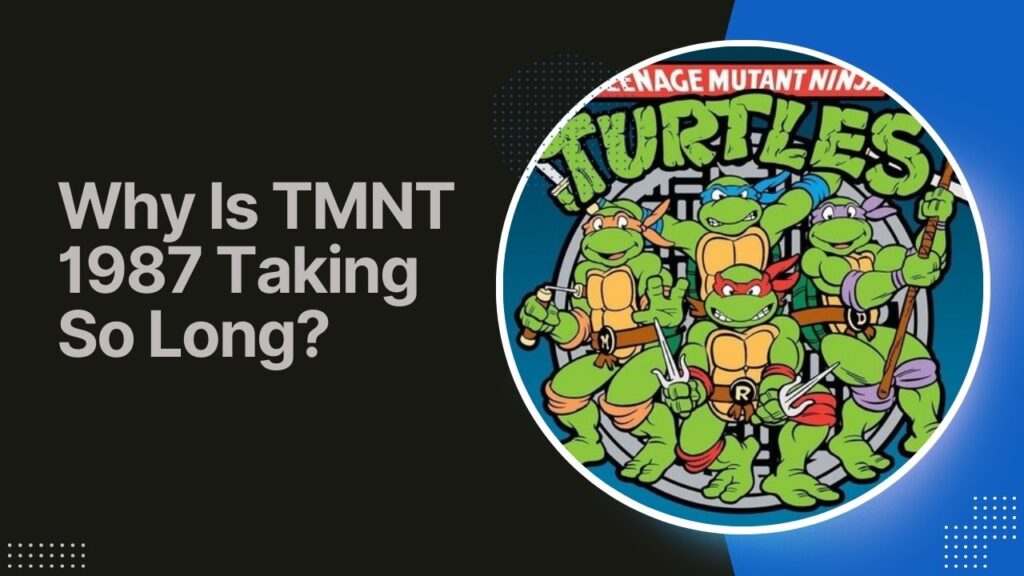Why Is The Death Note Ending So Bad? The ending of Death Note is often criticized for its rushed conclusion and inconsistent character development, especially with Light’s sudden downfall.
Death Note is a cultural phenomenon that captivated millions with its unique premise, complex characters, and intense psychological battles.
However, while the series is often praised for its gripping narrative, the ending remains a polarizing topic among fans and critics.
Many feel that the final arc fell short of the high expectations set by the earlier episodes. In this blog, we’ll explore why the Death Note ending is often considered unsatisfactory.
What Is Death Note?
A Brief Synopsis
Death Note tells the tale of Light Yagami, a gifted high school kid who discovers the Death Note, a paranormal notepad.
If he recognizes the face of the person with whom he writes in this notebook, he has the authority to kill them.
With this newfound power, Light sets out to create a utopia free of crime, positioning himself as the god-like figure “Kira.”
The series takes a dark turn when L, an enigmatic and equally brilliant detective, begins his pursuit of Kira. [Why Is The Death Note Ending So Bad?]
The intense cat-and-mouse game between Light and L forms the heart of the series, keeping audiences on the edge of their seats.
The Legacy of Death Note
Since its debut, Death Note has become a cornerstone of anime culture, praised for its mature themes and intricate storytelling.
Its influence extends beyond anime, inspiring adaptations in film, television, and even stage plays. However, its ending has sparked widespread debate, leaving fans divided.
Why Is the Death Note Ending Considered Bad?
Decline in Light’s Strategic Brilliance
One of the biggest criticisms of the ending is the noticeable decline in Light’s intelligence and strategic acumen. [Why Is The Death Note Ending So Bad?]
Throughout the series, Light is portrayed as a master manipulator, always several steps ahead of his opponents.
However, in the final arc, his decisions appear rushed and careless, which feels out of character for someone who outwitted L.
For instance, Light’s failure to properly vet Mikami’s actions or foresee Near’s trap highlights a significant departure from his earlier meticulousness. [Why Is The Death Note Ending So Bad?]
This sudden drop in brilliance disappointed many fans who had come to admire Light’s cunning. It feels like the writers intentionally weakened Light to facilitate his downfall, undermining the character’s previously consistent portrayal.
Near and Mello: Weak Successors to L
After L’s death, Near and Mello are introduced as his successors. [Why Is The Death Note Ending So Bad?]
Unfortunately, these characters fail to fill the void left by L. Near, in particular, is often criticized for lacking the depth and charisma that made L so compelling.
His methods, while effective, lack the dramatic flair that defined L’s approach, making him less engaging as an antagonist.
Mello, on the other hand, plays a less significant role and feels underdeveloped. [Why Is The Death Note Ending So Bad?]
His motivations and strategies are not explored in as much depth as L’s or even Near’s, making him feel like a secondary character despite his supposed importance.
The rivalry between Near and Mello could have been an interesting subplot, but it ends up feeling rushed and underwhelming, leaving fans wanting more.
Rushed and Predictable Climax
The climax of Death Note—the final confrontation between Light and Near—feels rushed and predictable.
The elaborate setup leading to the showdown at the Yellow Box Warehouse could have been an opportunity for a grand, mind-blowing conclusion.
Instead, the resolution is straightforward and lacks the tension that defined earlier episodes. [Why Is The Death Note Ending So Bad?]
The pacing of the final arc also contributes to the underwhelming climax. Key plot points are resolved quickly, leaving little room for the intricate planning and psychological battles that Death Note is known for.
Many fans argue that the buildup to Light’s downfall deserved more intricate plotting and emotional weight. [Why Is The Death Note Ending So Bad?]
The ending’s predictability robbed it of the shock value that Death Note was known for, making it feel like a standard “good triumphs over evil” conclusion.
Emotional Disconnect in Light’s Downfall
Light’s eventual downfall is another contentious point. While his defeat is inevitable given the narrative arc, the manner in which it unfolds leaves much to be desired. [Why Is The Death Note Ending So Bad?]
His desperate attempts to justify his actions and his unceremonious death feel hollow compared to the intense psychological battles that defined his character earlier in the series.
The emotional disconnect stems from the lack of depth in Light’s final moments. Instead of a reflective or profound conclusion, Light’s end feels abrupt and devoid of the philosophical weight that the series initially promised.
His character arc, which began as a fascinating exploration of morality and power, concludes in a way that feels more like a typical villain’s demise rather than the complex, morally ambiguous resolution fans were hoping for.
Fan Reactions and Critic Reviews
Fan Complaints
Fans have been vocal about their disappointment with the ending. Online forums are filled with discussions dissecting every aspect of the final arc. [Why Is The Death Note Ending So Bad?]
Common complaints include Light’s uncharacteristic mistakes, the underwhelming new characters, and the lack of a satisfying emotional payoff.
For many, the ending failed to live up to the brilliance of the series’ first half, where the psychological battle between Light and L kept viewers hooked.
Some fans also expressed frustration with how Light’s character was handled in the final moments. His fall from grace, while inevitable, felt more like a plot device than a natural progression of his character arc.
This left many feeling unsatisfied, as they believed Light deserved a more fitting end, either through a more elaborate defeat or a more introspective conclusion. [Why Is The Death Note Ending So Bad?]
Critical Perspectives
Critics have also weighed in, offering a more balanced view. While some acknowledge the flaws, others argue that the ending aligns with the series’ overarching themes of power and hubris.
From this perspective, Light’s downfall can be seen as the natural consequence of his overconfidence and moral corruption.
However, even critics who appreciate the thematic consistency often concede that the execution could have been better. [Why Is The Death Note Ending So Bad?]
Some critics also point out that the introduction of Near and Mello, while necessary to continue the story after L’s death, was not handled as effectively as it could have been.
Their roles feel underdeveloped, and their dynamic with Light lacks the tension and complexity of Light’s relationship with L.
Could the Ending Have Been Better?
Alternative Endings Proposed by Fans
Many fans have suggested alternative endings that could have addressed the perceived flaws. [Why Is The Death Note Ending So Bad?]
Some propose a scenario where Light successfully outsmarts Near but ultimately succumbs to his own hubris in a more poetic fashion.
This would have preserved Light’s reputation as a brilliant strategist while still delivering a morally consistent conclusion. [Why Is The Death Note Ending So Bad?]
Other fans suggest an ending where Light and Near engage in a more intricate psychological battle, with the outcome left more ambiguous.
This could have added an extra layer of depth and complexity, leaving viewers with more to ponder about the nature of justice and morality.
What If L Survived?
One popular fan theory explores the possibility of L surviving and continuing his battle against Kira. [Why Is The Death Note Ending So Bad?]
This would have maintained the intense dynamic between the two characters and provided a more satisfying resolution to their rivalry.
Many fans believe that L’s presence in the final arc could have elevated the narrative, adding the tension and intrigue that Near and Mello failed to deliver.
Improving Light’s Downfall
A more introspective ending could have added depth to Light’s character. [Why Is The Death Note Ending So Bad?]
Instead of a frantic and desperate demise, a reflective conclusion where Light grapples with the consequences of his actions might have provided a stronger emotional impact.
This could have been achieved through a final monologue or a series of flashbacks, allowing viewers to see the full extent of Light’s internal conflict and the weight of his decisions.
Final Verdict
While Death Note remains a masterpiece in many respects, its ending is widely regarded as a missed opportunity.
The decline in Light’s strategic brilliance, the underwhelming new characters, and the rushed climax are some of the key reasons why the finale falls short. [Why Is The Death Note Ending So Bad?]
However, the series’ impact on anime culture and its enduring fanbase prove that Death Note is still a remarkable work despite its flaws.
The debate surrounding the ending also highlights the importance of satisfying conclusions in storytelling.
While it’s impossible to please everyone, a well-crafted ending can significantly enhance a series’ legacy. [Why Is The Death Note Ending So Bad?]
In the case of Death Note, the ending may not have lived up to expectations, but it continues to spark discussions and analyses, which is a testament to its enduring relevance.
See Also: Why Is King Von So Hated? Talent or Controversy?
FAQs
Is the anime ending different from the manga?
The anime ending closely follows the manga, with only minor differences in pacing and presentation.
Why did fans dislike Near and Mello?
Near and Mello were seen as less compelling successors to L, lacking his depth and unique quirks.
Did Light’s downfall feel justified?
Many fans feel Light’s downfall was inevitable but poorly executed, lacking the tension and brilliance of earlier episodes.
Are there alternative versions of the ending?
Some adaptations, like the live-action films, offer slightly different endings, but the core conclusion remains the same. [Why Is The Death Note Ending So Bad?]
Does the ending affect the series’ legacy?
While the ending is divisive, Death Note remains a beloved and influential series in the anime community.
Conclusion: Why Is The Death Note Ending So Bad?
Despite its controversial ending, Death Note continues to be a landmark in anime history.
Its thought-provoking themes and complex characters ensure that it remains a subject of discussion and analysis for years to come.
Ultimately, while the ending may not have lived up to expectations, Death Note’s legacy as one of the most influential anime of all time is firmly cemented.

Hi, I’m Fernando Pham, and welcome to WhyDetails.com! I’m from San Francisco, and I love exploring questions and sharing answers through my blog.



